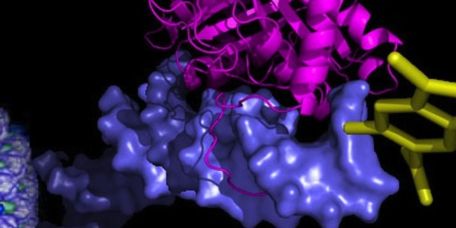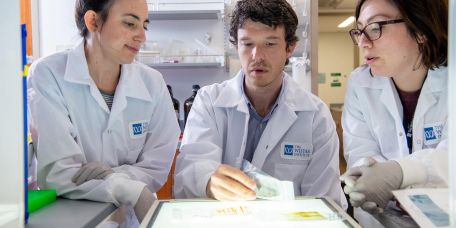Press Releases
March 23, 2021
PHILADELPHIA — (March 23, 2021) — The Wistar Institute, a global leader in biomedical research in cancer, immunology and infectious disease, is pleased to announce the appointment of Richard M. Horow…
March 12, 2021
PHILADELPHIA — (March 12, 2021) — Scientists at The Wistar Institute identified a new function of ADAR1, a protein responsible for RNA editing, discovering that the ADAR1p110 isoform regulates genome…
January 21, 2021
PHILADELPHIA — (Jan. 21, 2021) — Researchers at The Wistar Institute have discovered a new enzymatic function of the Epstein-Barr Virus (EBV) protein EBNA1, a critical factor in EBV’s ability to tran…
January 13, 2021
PHILADELPHIA — (Jan. 13, 2021) — Scientists at The Wistar Institute discovered that Early Growth Response 1 (EGR1), a protein that turns on and off specific genes during blood cell development, inhib…
January 12, 2021
PHILADELPHIA — (Jan. 12, 2021) — Scientists at The Wistar Institute have created an advanced humanized immune system mouse model that allows them to examine resistance to immune checkpoint blockade t…
January 7, 2021
PHILADELPHIA — (Jan. 7, 2021) — Scientists at The Wistar Institute characterized an inhibitor that targets acetate metabolism in cancer cells. Cancer cells use acetate metabolism to support tumor gro…
April 29, 2020
PHILADELPHIA — (April 29, 2020) — The Wistar Institute and Batavia Biosciences announce the launch of a strategic collaboration aimed to streamline the clinical grade manufacture and global distribut…






